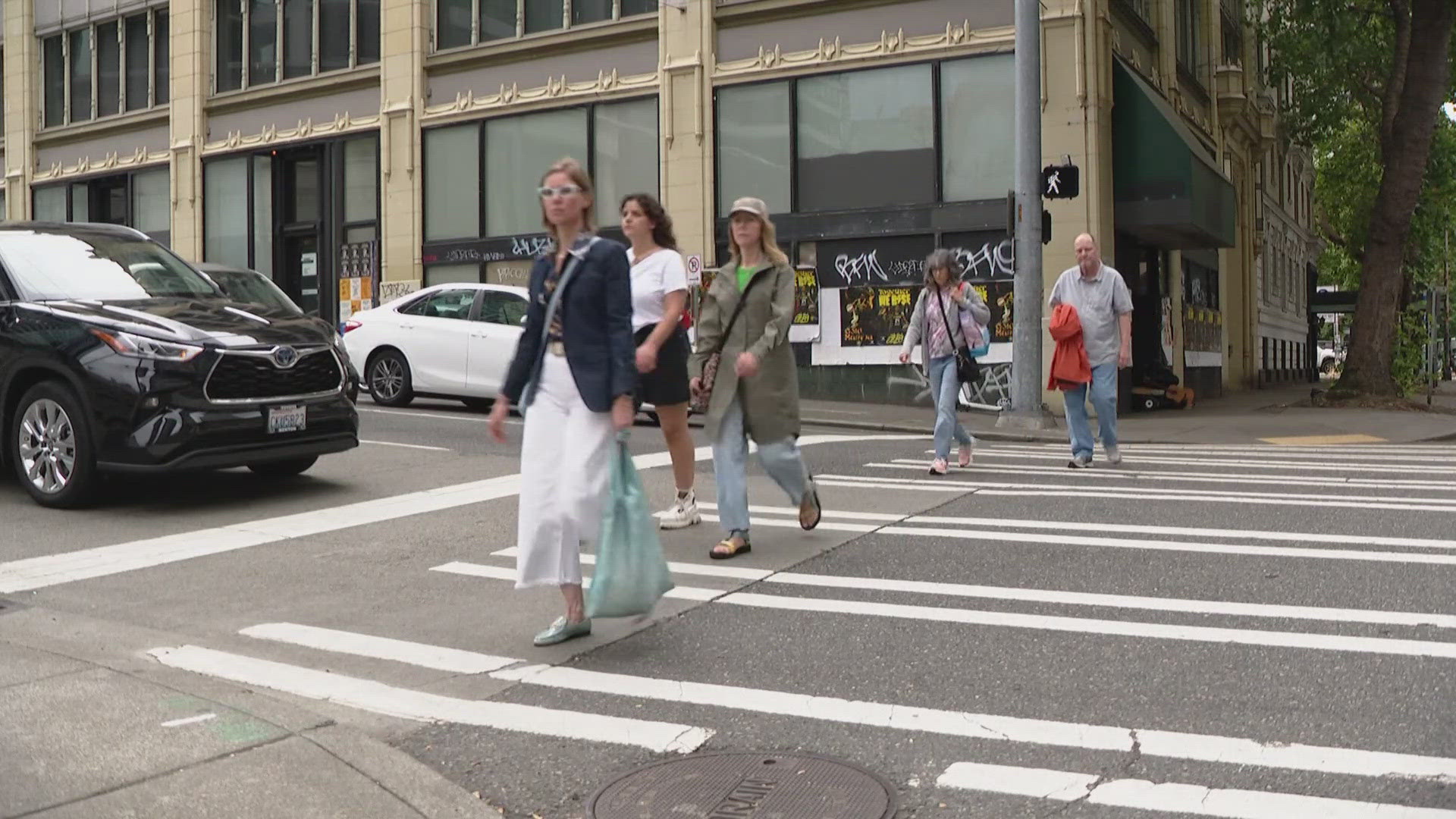SEATTLE — It's been one year since Seattle Mayor Bruce Harrell announced his Downtown Activation Plan to make the city safer and more welcoming.
On Wednesday, the city hosted a roundtable to give an update on the progress. City leaders said they're on the right track with the plan.
"The first year of the downtown activation plan is a roaring success," said Tim Burgess, Seattle's deputy mayor.
In its first year, the city said 43 of the 46 Downtown Activation Plan initiatives are completed or in progress.
The mayor has seven core goals within the plan. The top three are to make downtown safer and more welcoming; to transform downtown into a lively neighborhood where people want to live; and to create a unique retail experience.
According to the city, there are more people living in downtown now than ever before, with more than 106,000 residents. And last summer, the city said more than 19 million people visited downtown.
The city said there's been an 18% decrease in overdoses, compared to this time last year, and a nearly 17% increase in arrests during that same span.
"We're taking a dual approach to address the criminal behavior obviously which we do not want and will not tolerate,” said Deputy Mayor Burgess. “While we're also addressing addiction issues and mental issues and making sure these individuals have housing."
"This year has really been a year of ups and downs," said Lisa Howard, the executive director, Alliance for Pioneer Square.
Howard said there's been positive movement within the neighborhood with some businesses thriving and new ones opening, along with several events held in the heart of the neighborhood over the past year.
But she said there's still more work to do when it comes to addressing drug usage.
"In addition of the Unified Care Team, we have more resources available matching up to the problems that we're seeing out on the streets and sidewalks is going to be an ongoing book of work," said Howard.
KING 5 spoke with people who have lived in Seattle for decades. They said they have mixed feelings about the progress of downtown, especially when it comes to homelessness and drugs.
"You don't see tents anymore,” said Norman Chin. “So, I think Seattle is pretty much cleaned up."
"Open [drug] use, is actually worse it feels to me,” said Lydia Marshall. “I feel like I see that particular thing more often. I feel as though a lot of other things haven't changed a lot."
The Downtown Seattle Association sent a statement to KING 5, which said metrics of people working and spending time downtown are trending in the right direction.
“We’re seeing more workers returning to the office than at this point last year, and those numbers should get stronger with more employers making recent announcements to have their staffs back in the office later this year," the statement reads in part.
"Revitalization is based on people and we’re seeing those metrics trending in the right direction with visitors, workers and a record residential population. Now we need to ensure these areas are clean, clear and cared for and our ambassadors work on that daily. If we can offer a vibrant downtown and enhanced public safety, I think we’ll see more people choosing to come back," the statement continues.
Big projects such as the Seattle Aquarium’s Ocean Pavilion and the Waterfront Park’s Overlook Walk will "dramatically enhance the heart of our city and bring even more people to downtown," the association said.
The city doesn't have a timeline on when they want to complete this plan. However, many in the downtown have a goal of 2026 when the city is hosting the World Cup.

